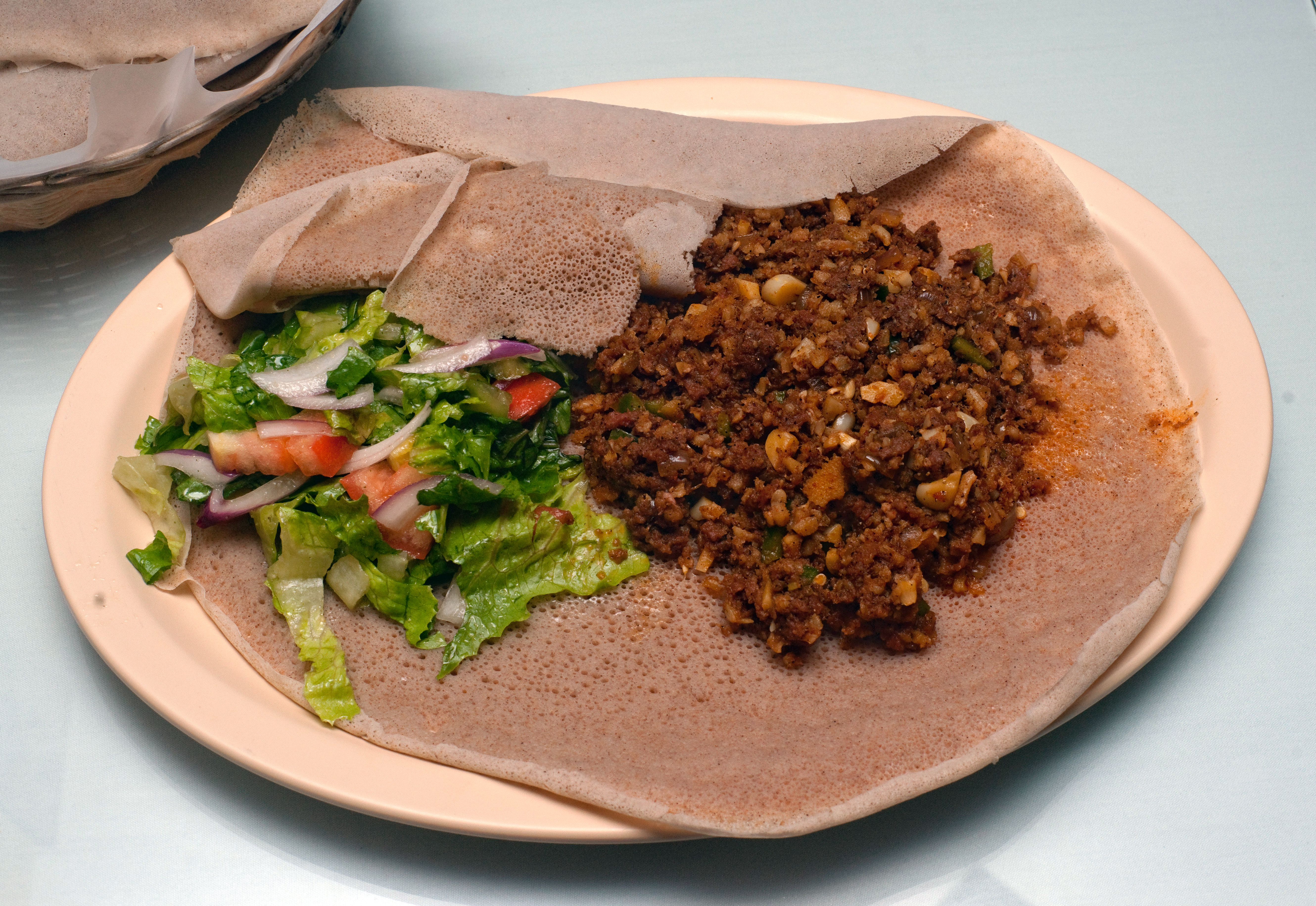Fairfax Avenue is known as an Ashkenazic Jewish thoroughfare, but the stretch between Olympic and Pico boulevards smells of incense and East African spices. Colorful storefronts line the block, selling coffee and dinner and crucifixes.
“This is the center,” said Berhanu Asfaw, gesturing down the street.
Ethiopian expatriates like him live in the houses that surround the commercial block. They come to Little Ethiopia to see friends and eat familiar food.
Asfaw is co-owner of an Ethiopian restaurant called Messob. The room is calm and dark, full of hand-carved furniture. A “messob” is a circular straw table traditional to Ethiopian meals. It’s customary to eat with your hands, scooping up meat and vegetables with “injera,” a flat, spongy East African bread.
Asfaw said that Ethiopian communities are far more relaxed than American ones. Neighbors take turns drinking coffee at each other’s tables. They take care of each other.
“People leave their doors unlocked,” Messob waitress Rhela Argew said.
An emigrant from Ethiopia, Argew has enjoyed learning about a new culture, but she says that Ethiopian culture is warmer than American. According to her, working at Messob feels a little bit like being back home.
Messob’s menu, like that of many Ethiopian restaurants, is designed around Coptic dietary needs.
Most Ethiopian Christians keep weekly fast days when they abstain from eating animal products, so in addition to chopped and stewed and sauteed meats, Messob serves vegan meals such as Yemiser Wot, steamed lentils with red pepper sauce.
Asfaw pointed out that Coptic Christians separate meat and vegan dishes the way Jews do meat and milk.
“We get along very well with the Jews,” Asfaw said.
However, Moji Nik, a Jewish store owner down the street, said the two communities don’t interact.
Nik and her husband run Helping Hand Thrift Shop. They sell records, used prayer books and ornate menorahs. The store is one of a handful of Jewish businesses on Fairfax Avenue.
Synagogue congregations moved to other areas of Los Angeles in the 1950s, and a few decades later, with famines striking Ethiopia, a new immigrant community began to take shape.
Asfaw imports his spices from Ethiopia, but the walls of his restaurant are lined with certificates from local and state officials in California, recognizing his work in Los Angeles.
Asfaw was one of the earlier Ethiopian businessmen on Fairfax Avenue, and he’s seen graffiti decrease and the community grow.
He said that the immigrants and their children have cleaned up the neighborhood.
“Ethiopians are cultured people. If we saw somebody doing something (bad), even if we don’t know them, we’d tell them to stop,” Asfaw said.
He said that he hopes to use his restaurant to teach other Angelenos about his community.
“People have misconceptions about Ethiopians. When I came here, they thought the whole country was starving. It was just certain provinces,” he said.
Still, Asfaw is a man who feeds.
